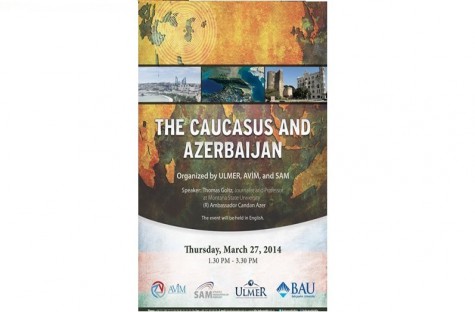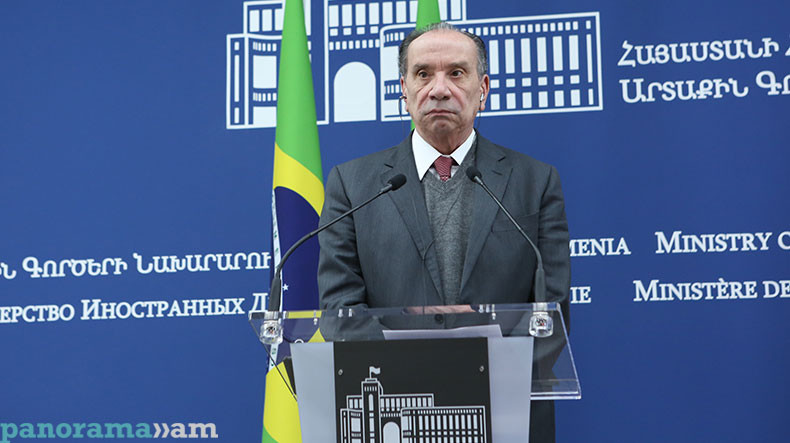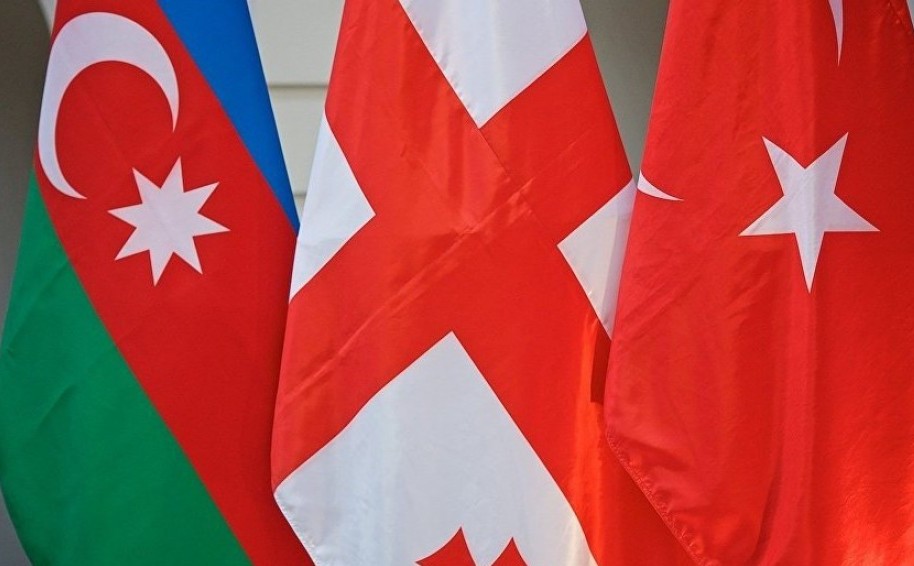Relations exist between Armenia and the European Union within the framework of the European Neighborhood Policy Action Plan. Moreover, negotiations are continuing for Armenia’s partnership into the Union.
Last week on December 7, the EU-Armenia Cooperation Council had convened in Brussels to which Stefan Füle, the European Commissioner for Enlargement and European Neighborhood attended from the EU, along with Foreign Minister Edward Nalbandyan from Armenia. In the press release related to this meeting, the Turkey-Armenia protocols have been mentioned and it has been stated that the Union underlines the importance of the ratification and implementation of the protocols without preconditions.
As known, ratifying the protocols without preconditions is Armenia’s view and means that these documents should be implemented without taking into consideration the Karabakh Conflict. Turkey’s stance is the opposite and foresees that the protocols be ratified and implemented after significant developments taking place for the Karabakh Conflict. Therefore, the European Union has once again affirmed that they have accepted Armenia’s views regarding this issue.
Shortly before the aforementioned meeting, the EU-Armenia Parliamentary Cooperation Committee had convened on December 1st and 2nd in Brussels. In the section on Turkey-Armenia relations in the Final Statement and Recommendations of the meeting, certain points have been highlighted which also reflect Armenian views.
Although temporarily, it is the Armenian Government which has taken the Turkey-Armenia protocols off the agenda of the Armenian Parliament. By expressing in the final statement that Armenia has suspended the ratification of the protocols because Turkey has applied preconditions, Armenia has tried to be cleared of their action.
On the other hand, in response to Turkey’s request to resolve the Karabakh Conflict as soon as possible in order to bring the protocols into effect, it has been stated that the Turkey-Armenia normalization process and the OSCE Minsk Group negotiations are separate processes. This way, they have tried to convey that Turkey’s contribution to the settlement of the Karabakh Conflict is unacceptable or at least undesirable.
Furthermore, this statement has also called on Turkey to lift the blockade imposed on Armenia prior to the ratification of the protocols as a gesture of good will.
Moreover, it has urged Turkey to establish diplomatic and good neighborly relations with Armenia without preconditions and to open the closed border at an early date.
Last of all, the statement has recalled the European Parliament’s resolution of 18 June 1987 which has recognized the Armenian genocide allegations. The most important section of the resolution which is still valid today is that Turkey’s refusal to acknowledge the Armenian genocide allegations will constitute an obstacle to its accession to the European Union.
In short, the matters which Armenia has defended all along have been acknowledged by the EU Cooperation Committee and on the contrary to the general practice, they have not even bothered to create a balance between these and the views of the Turkish side.
It is possible to draw two conclusions from this meeting. The first is that the EU acknowledging the Armenian views shows that this organization gives support to Armenia, but at the same time, their unfavorable stance towards Turkey is continuing. The second is that Armenia, which has easily imposed their views on the EU, will adopt a much more uncompromising approach in the future, in the normalization process of their relations with Turkey.
© 2009-2025 Center for Eurasian Studies (AVİM) All Rights Reserved
JOACHIM GAUCK AND TURKEY
REACTIONS TOWARD ERDOĞAN’S MESSAGE
“GENOCIDE” LAW IN GREECE
 A MEETING WILL BE HELD ON "CAUCASUS AND AZERBAIJAN" IN İSTANBUL
A MEETING WILL BE HELD ON "CAUCASUS AND AZERBAIJAN" IN İSTANBUL
 THE BRAZILIAN MINISTER OF FOREIGN AFFAIRS HAS DISAPPOINTED ARMENIA
THE BRAZILIAN MINISTER OF FOREIGN AFFAIRS HAS DISAPPOINTED ARMENIA
 GEORGIA’S CONTRADICTORY POLICIES ENDANGER REGIONAL COOPERATION
GEORGIA’S CONTRADICTORY POLICIES ENDANGER REGIONAL COOPERATION
 PASHINYAN’S SHIFTING STATEMENTS
PASHINYAN’S SHIFTING STATEMENTS




























